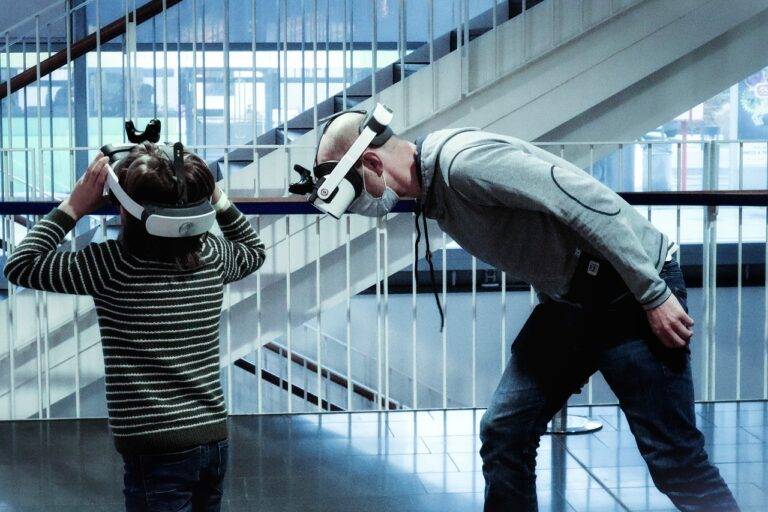Tech for Mental Health: Innovative Solutions for Well-being
Technology has become an integral part of our daily lives, impacting various aspects of society, including mental health. With the rise of smartphones, wearable devices, and online platforms, there is now a wealth of innovative solutions that aim to improve mental well-being. From apps that provide meditation guidance to virtual reality experiences that help individuals manage anxiety, technology is revolutionizing the way we approach mental health.
The Rise of Mental Health Tech
In recent years, the demand for mental health services has increased significantly, with more people seeking help for issues such as depression, anxiety, and stress. This has led to a growing interest in using technology to address these challenges in a more accessible and effective way. As a result, there has been a surge in the development of mental health tech solutions that leverage the power of digital tools to support individuals in their mental well-being journey.
Types of Tech Solutions
There are numerous types of tech solutions available today that cater to different aspects of mental health. Some of the most popular categories include:
1. Mental Health Apps
There are thousands of mental health apps available on the market, offering features such as mood tracking, meditation exercises, cognitive behavioral therapy (CBT) tools, and more. These apps are designed to help individuals manage their mental health on a daily basis and provide support wherever they are.
2. Wearable Devices
Wearable devices such as smartwatches and fitness trackers can also play a role in supporting mental health. These devices can track physical activity, sleep patterns, and even stress levels, providing users with valuable insights into their overall well-being.
3. Virtual Reality (VR) Therapy
Virtual reality technology has been increasingly used in therapy settings to treat various mental health conditions, such as phobias, PTSD, and anxiety disorders. VR therapy offers a safe and immersive environment for individuals to confront their fears and learn coping strategies.
4. Online Therapy Platforms
Online therapy platforms connect individuals with licensed therapists through video calls, chat sessions, and phone consultations. These platforms offer a convenient and flexible way to access mental health support from the comfort of one’s own home.
The Benefits of Tech for Mental Health
There are several key benefits to using technology for mental health:
1. Accessibility
One of the main advantages of tech solutions is their accessibility. Individuals can access mental health support anytime, anywhere, without the need to visit a therapist in person. This can be particularly beneficial for those who live in remote areas or have limited mobility.
2. Affordability
Tech solutions are often more affordable than traditional therapy services, making mental health support more accessible to a wider audience. Many apps and online platforms offer free or low-cost options, allowing individuals to receive help without breaking the bank.
3. Personalization
Tech solutions can be tailored to meet individual needs and preferences. Users can choose from a variety of tools and resources that best suit their goals, whether it’s managing stress, improving sleep, or building resilience. This personalization can lead to more effective outcomes in the long run.
The Future of Mental Health Tech
As technology continues to advance, the possibilities for mental health tech are endless. Researchers are exploring new avenues, such as artificial intelligence, machine learning, and biometric sensors, to further enhance the effectiveness of tech solutions for mental well-being. With ongoing innovation and collaboration, the future of mental health tech looks promising.
FAQs
1. Are mental health apps effective?
Many studies have shown that mental health apps can be effective in improving mood, reducing symptoms of anxiety and depression, and enhancing overall well-being. However, it’s essential to choose a reputable app that is backed by research and offers evidence-based interventions.
2. Is online therapy as effective as in-person therapy?
Research has indicated that online therapy can be just as effective as in-person therapy for many individuals, particularly for those with mild to moderate mental health concerns. Factors such as convenience, affordability, and accessibility make online therapy a valuable option for those seeking mental health support.
3. How can virtual reality therapy benefit individuals with mental health conditions?
Virtual reality therapy provides a unique and immersive experience that can help individuals confront their fears, manage anxiety, and develop coping skills in a controlled environment. This technology has shown promising results in treating conditions such as PTSD, phobias, and social anxiety.





